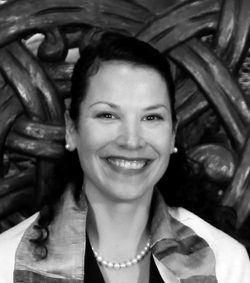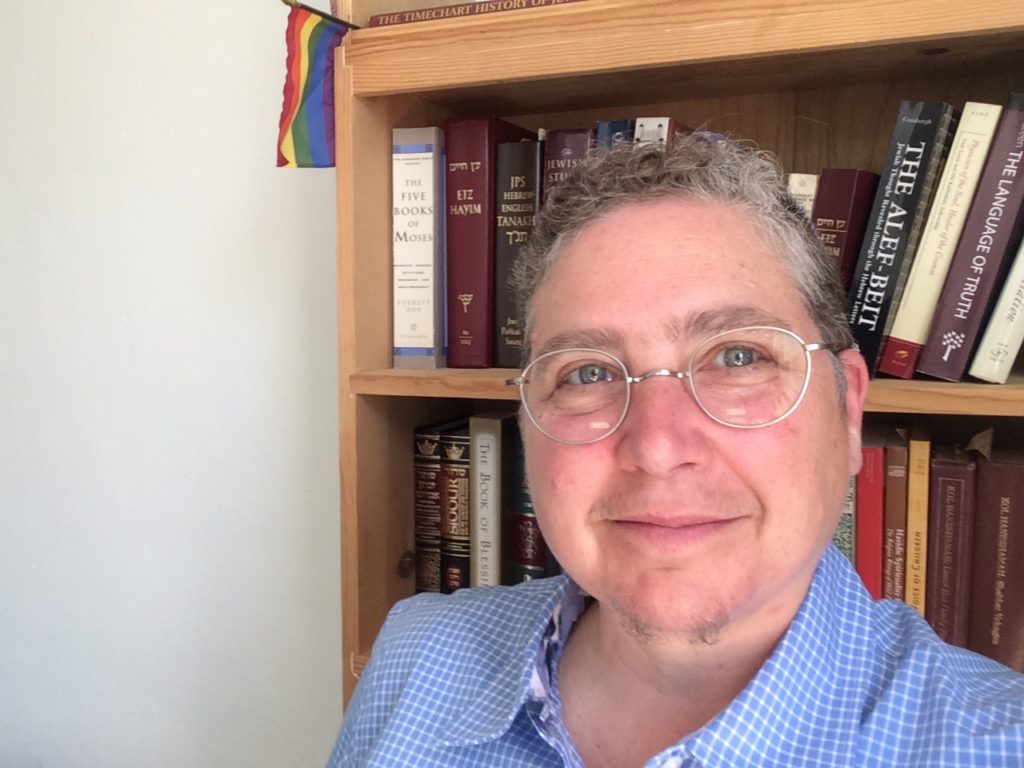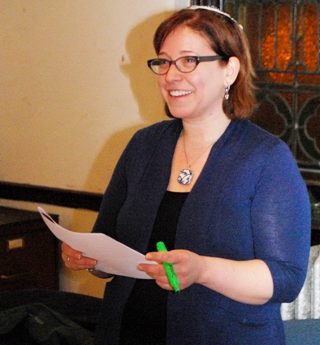Racial justice
A Plan Devised Against Them: Oppression and Justice, Then and Now
A brief text study about the systemic nature of racial oppression, with thanks to Rabbi Michael Rothbaum.
more

Pursue Justice So That You May Truly Live
This week’s Torah portion contains one of the most famous justice-related verses in Torah: “צֶ֥דֶק צֶ֖דֶק תִּרְדֹּ֑ף, / tzedek tzedek tirdof” — “Justice, justice shall you pursue!” Although the parsha begins with the injunction to establish judges, this instruction — to pursue justice — doesn’t seem to be aimed solely at those whose job it...
more

Proximity for Consolation and Deliverance
July has been a hard month. Elie Weisel passed away. Alton Sterling and Philando Castile were senselessly shot and killed by policemen. Women wearing tallit, kippot, and tefilin while praying with the Torah were shouted down and called “Amalek” by fellow Jews at the Kotel. Eight police officers, five in Dallas and three in Baton...
more

Being Like Reuben and Gad: What sort of allies will we be?
Have you ever been the one white person, or one of the only, attending a Black activist event or protest? Have you been the one, or one of the only, men gathered in a Feminist space? Have you been the one cisgender individual in a room of Trans activists organizing for change? Have you ever...
more

From Racism to Liberation: Confronting Tzara’at in Our Society
In our parashah, we learn about the mysterious affliction tzara’at. Further on in the Book of Numbers, Miriam the Prophetess is stricken with tzara’at as a punishment for speaking against her brother Moses. Miriam and her other brother Aaron – we’ll have to save the question of why Aaron goes unpunished for another d’var Torah...
more

“Mishpat Echad”
At the end of parashat Emor, our rabbis focus on a single phrase, “You shall have one justice for the stranger and the citizen alike, I am the Eternal.” (Leviticus 24: 22) We have to ask ourselves: how are we doing upholding the principle of equal justice? Let us begin with the great scholar who...
more

Seeing the Dark in a Different Light: The Power of Our Language to Promote Racial Justice
The Black Lives Matter movement has re-focused my attention on the ways that I participate in the racial injustice that is pervasive in our society and culture. One of those ways is through language—both what I say and what I hear. And especially, the ways that I use “light” and “dark” as metaphors for “good”...
more

At Our Season of Liberation, Black Lives Matter
Change in the air. Sugar-flecked red, yellow, orange, and green jelled semi-circle slices; macaroons; pounds of nuts; Barton’s tin can almond kisses; overflowing grocery bags. My mother and I shop among the street carts and small shops that dot Blake Avenue in East New York, Brooklyn. Although my family is not observant, the white gold-rimmed...
more

A Long Walk Continued
Nelson Mandela called his autobiography Long Walk to Freedom, and that title resonates with this week’s Torah portion, Haazinu. This parashah is only one chapter long; it is written in two columns in poetic form, resembling a two lane road; and it records Moses’ last song to the Children of Israel. It is a last...
more

From Moses to Today: Accountability and Transparency in Leadership
Brandon Tate-Brown, a 26 year-old African-American man, was, according to his mother and friends, finally putting his life back together. After spending some time in jail for aggressive behaviors, he was trying to rehabilitate himself—working at a new job and finally moving into an apartment of his own. On December 15, 2014, Brandon Tate-Brown was...
more
